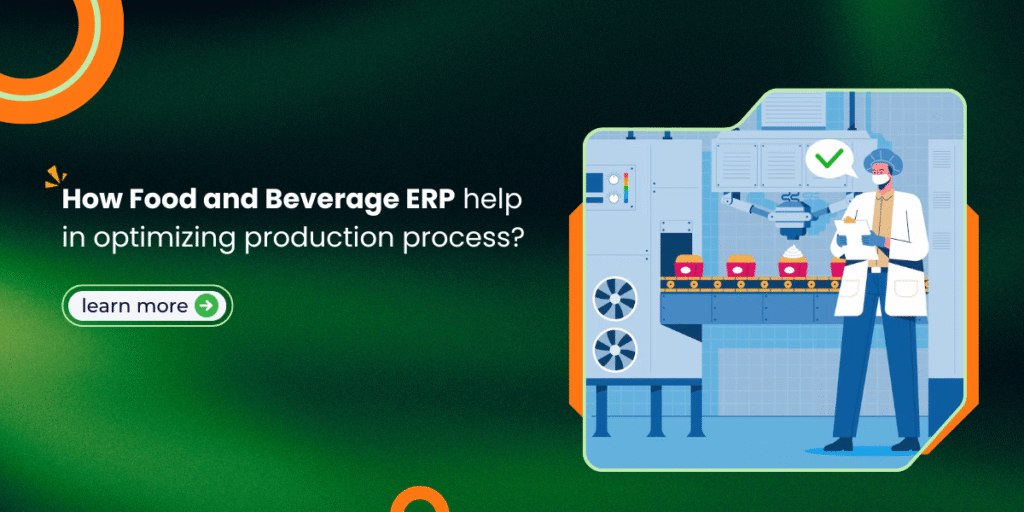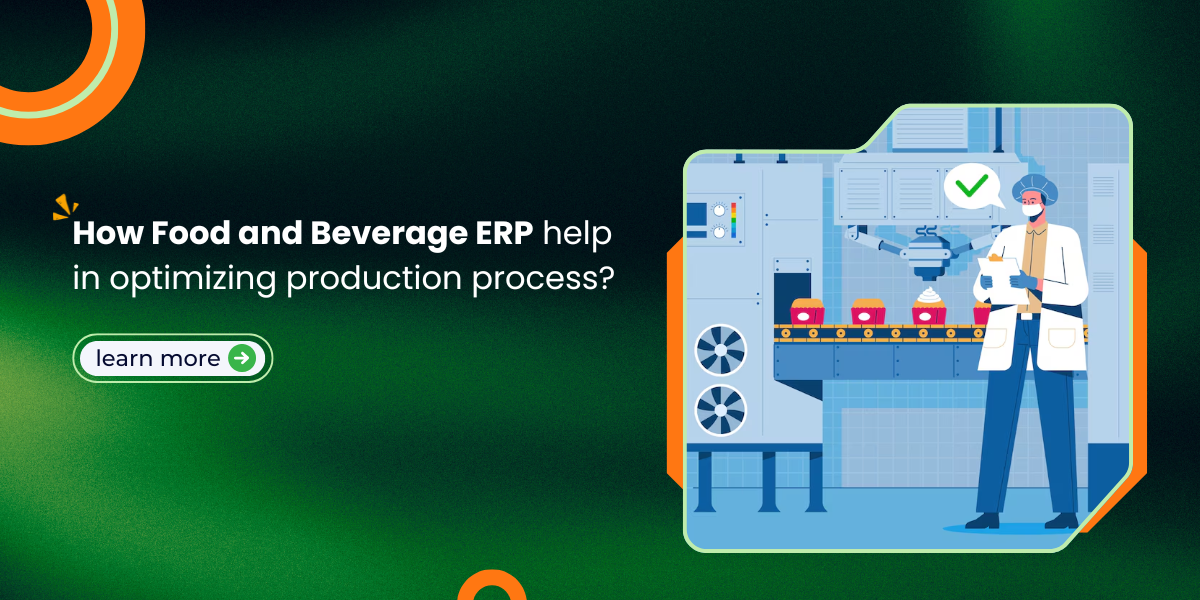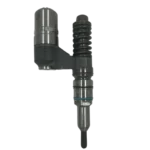The food and beverage industry is one of the most dynamic industries where manufacturers are continuously looking for new ways to optimize their production process, reduce costs, improve customers’ experience and cope with their changing demands. With passing days, the challenges related to supply chain management are continuously increasing and as a result, food and beverage manufacturers are finding it difficult to deal with these challenges that are evolving from time to time.
But do you know how exactly an ERP for food and beverage improves manufacturing processes? Here, in this blog, you will come to know the benefits of ERP and its features that make an ERP system an important tool for modern manufacturers.

- Improve production planning and scheduling: Efficient production planning is the cornerstone of any successful food and manufacturing business. An ERP for food production offers real-time data, forecasting demand and insights into historical production. It also allows manufacturers to optimize production schedules while minimizing downtime. This not only helps with reducing the cost but also makes sure that production aligns perfectly with customer demand, reducing the risk of stockouts and overproduction. For example, a bakery business using food manufacturing ERP can forecast increasing demand of cakes during festive season and thereby adjust production volume, ensuring there is fresh stick in every food chain and no unnecessary waste.
- Improve waste management and inventory: Food manufacturers often need to deal with the challenge of inventory spoilage, overstocking and supply chain disruptions. An ERP for the food industry integrates inventory management with sales, production and procurement, offering a clear view of stock levels. This greatly helps in maintaining inventory level, reducing holding costs and minimizing the rate of wastage. For example, a dairy firm can track the manufacturing expiry of their products ensuring the older batches are dispatched on priority basis to reduce the chances of waste.
- Real-time quality control: Quality is one of the most important factors to consider in the food and beverage industry. Food and beverage ERP is equipped with quality control systems that monitor each and every stage of the production process, starting from raw materials to final packaging. This ensures consistency in quality, reduces the risk of recalls and helps in maintaining a good brand reputation. For example, a snack item manufacturer can use an ERP system to automate the quality check process of each packaging item and comply with food and beverage regulatory protocols.
- Regulatory compliance and traceability: With passing days, food safety regulations are getting stricter. An ERP system helps manufacturers to keep their businesses compliant with food and beverage regulatory protocols and thereby avoid costly fines. This greatly helps in building customer trust.
- Streamline supply chain management and procurement: A food and beverage ERP system streamlines procurement process by streamlining vendor management, purchase orders and inventory restocking. This reduces costs, lead times and improves supplier relationships. For example, a food and beverage manufacturer can automate ingredient procurement based on real-time data, reducing the risk of production delays and risk of shortages.
- Data-driven decision-making: With real-time data, food manufacturers can make faster, smarter decisions. A food and beverage ERP provides detailed insights into production costs, operational efficiency and profitability, ensuring managers can optimize their production processes continuously. For example, a frozen food supplier can use ERP systems to identify cost saving techniques such as streamlining labor allocation and reducing energy consumption etc.
Final words
Therefore, if you are a food and beverage manufacturer, still relying on traditional spreadsheets, it’s time to make a move with an automated ERP system. From improving product quality, managing supply chain to enhancing production efficiency, an ERP can transform your business process drastically and set up for long-term success


